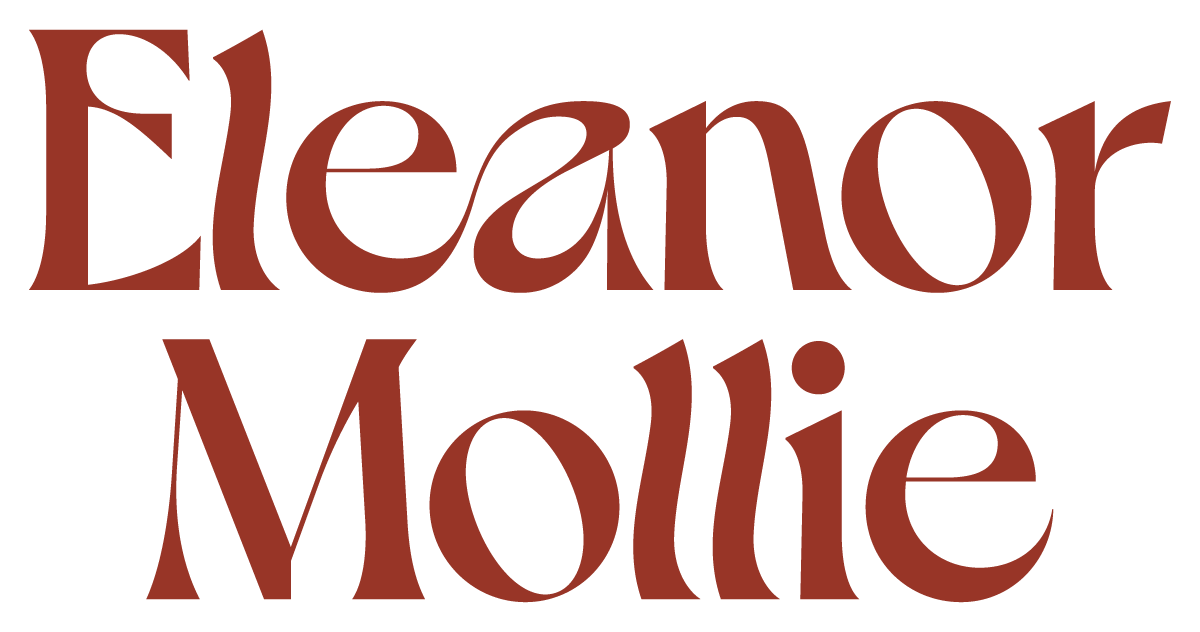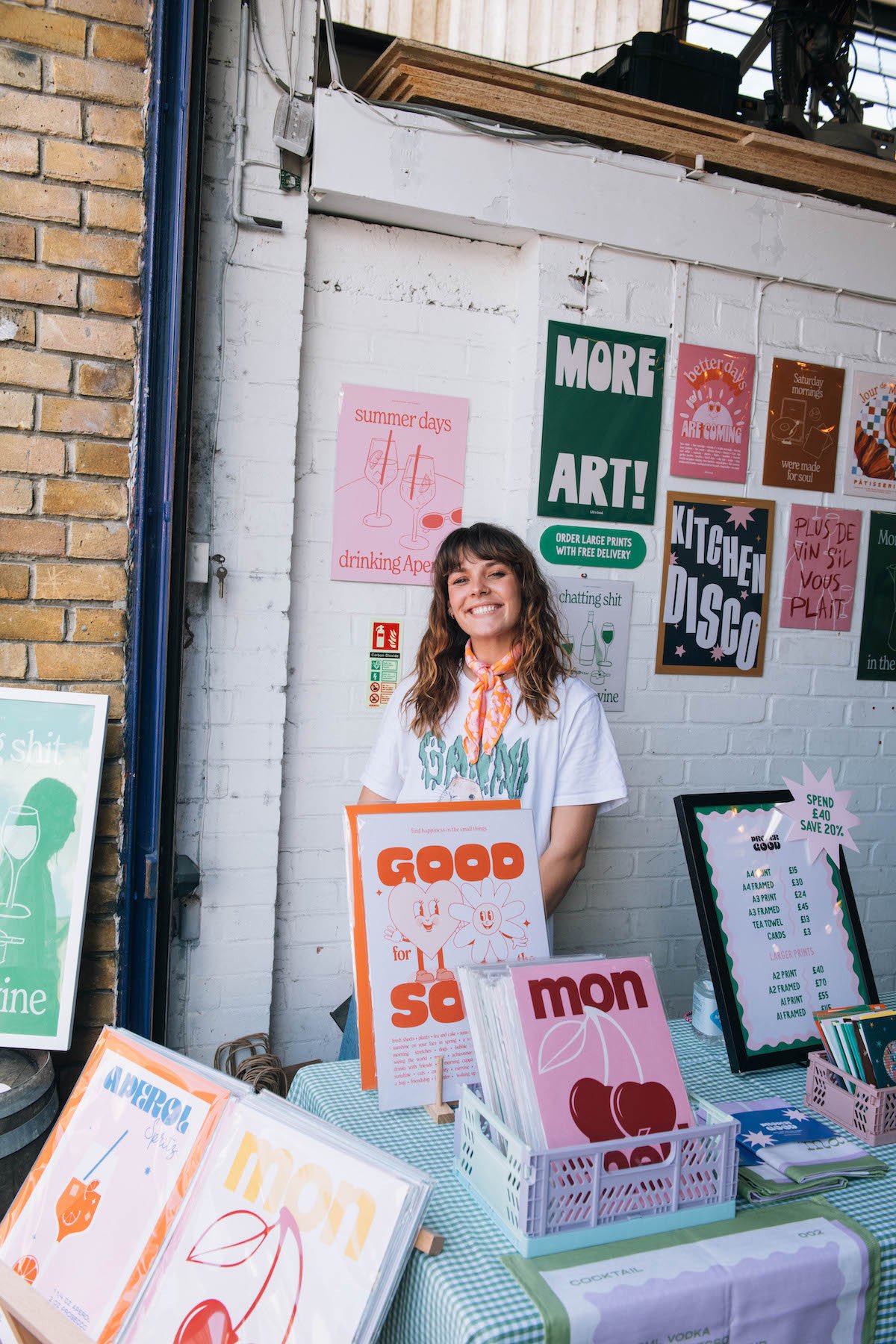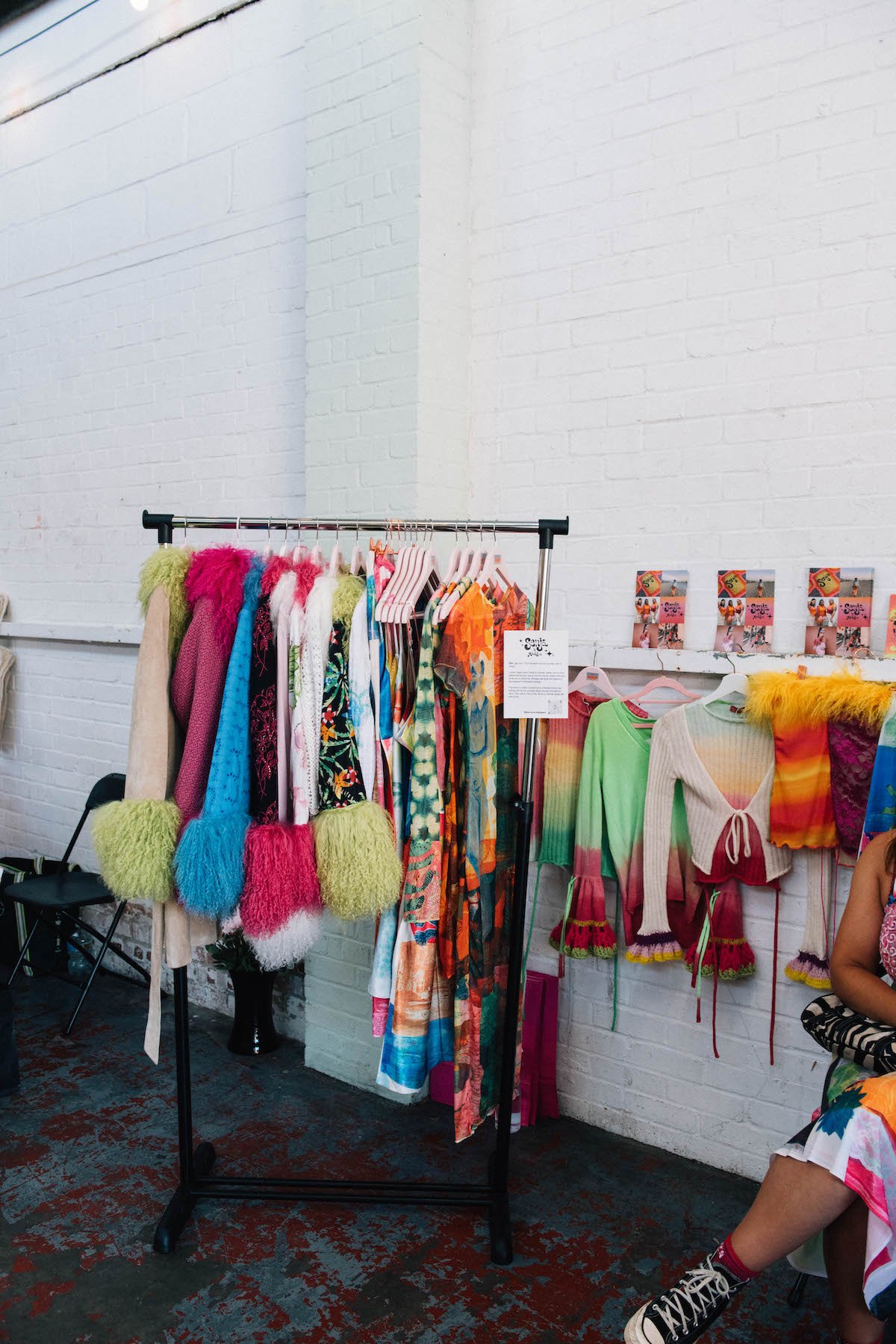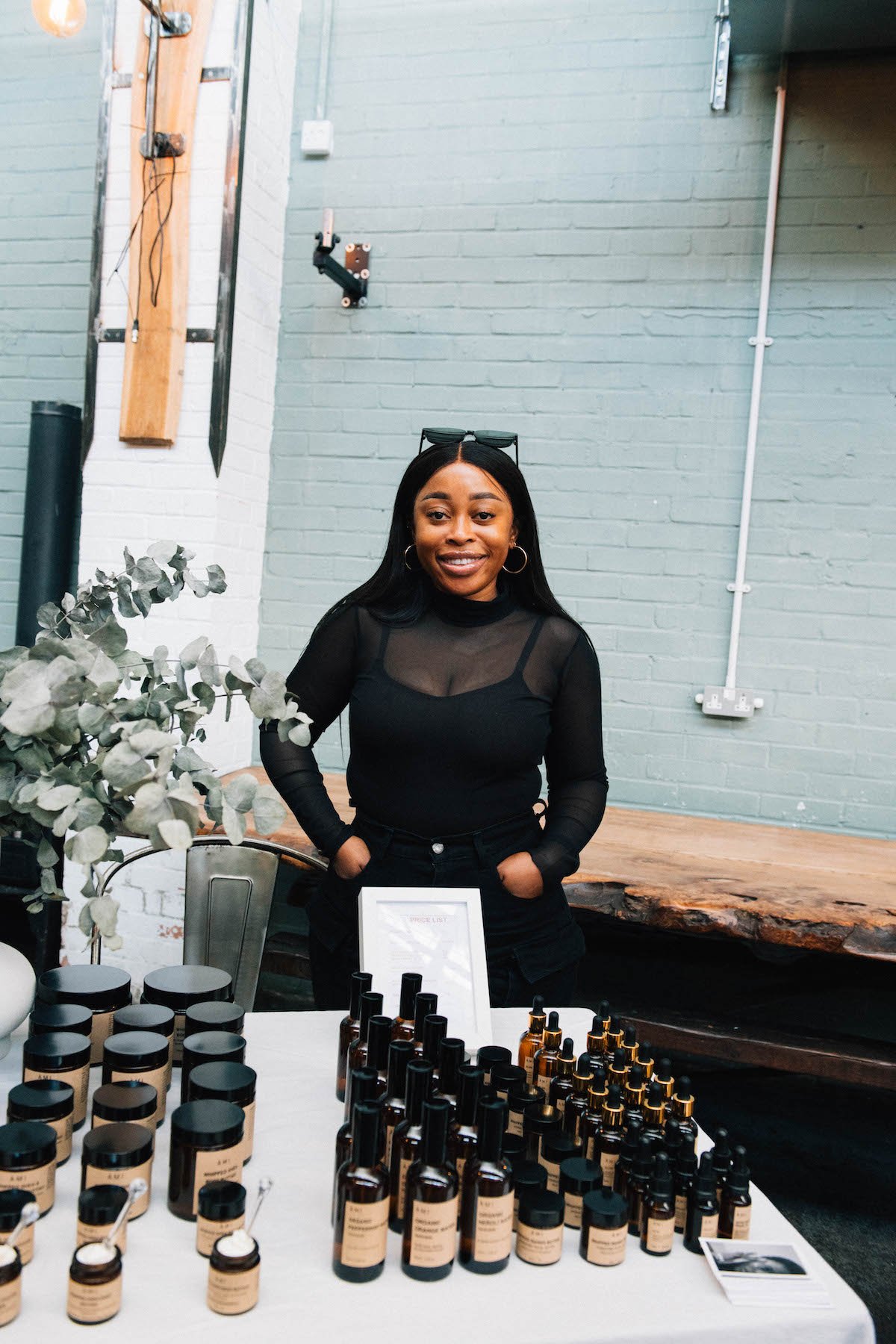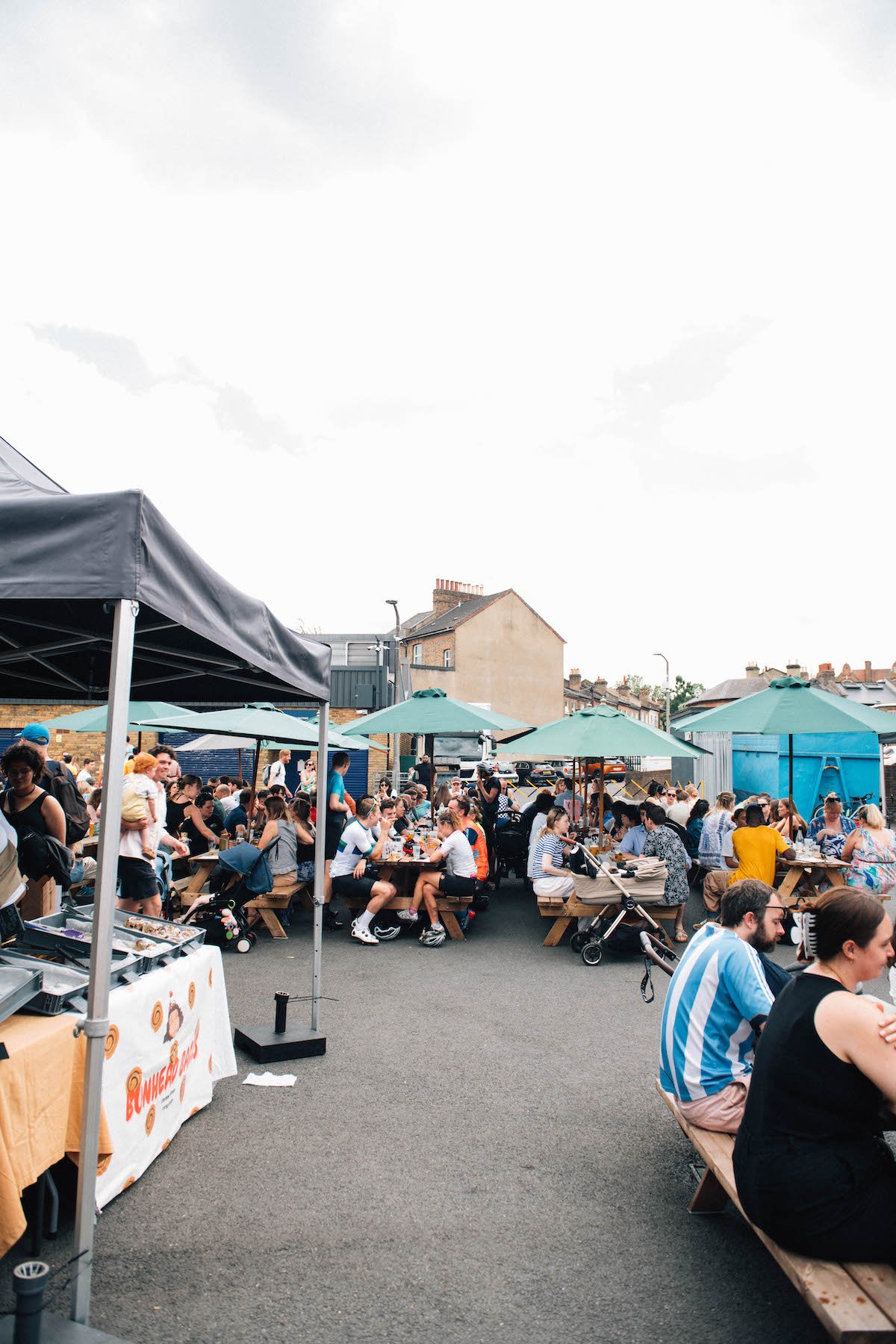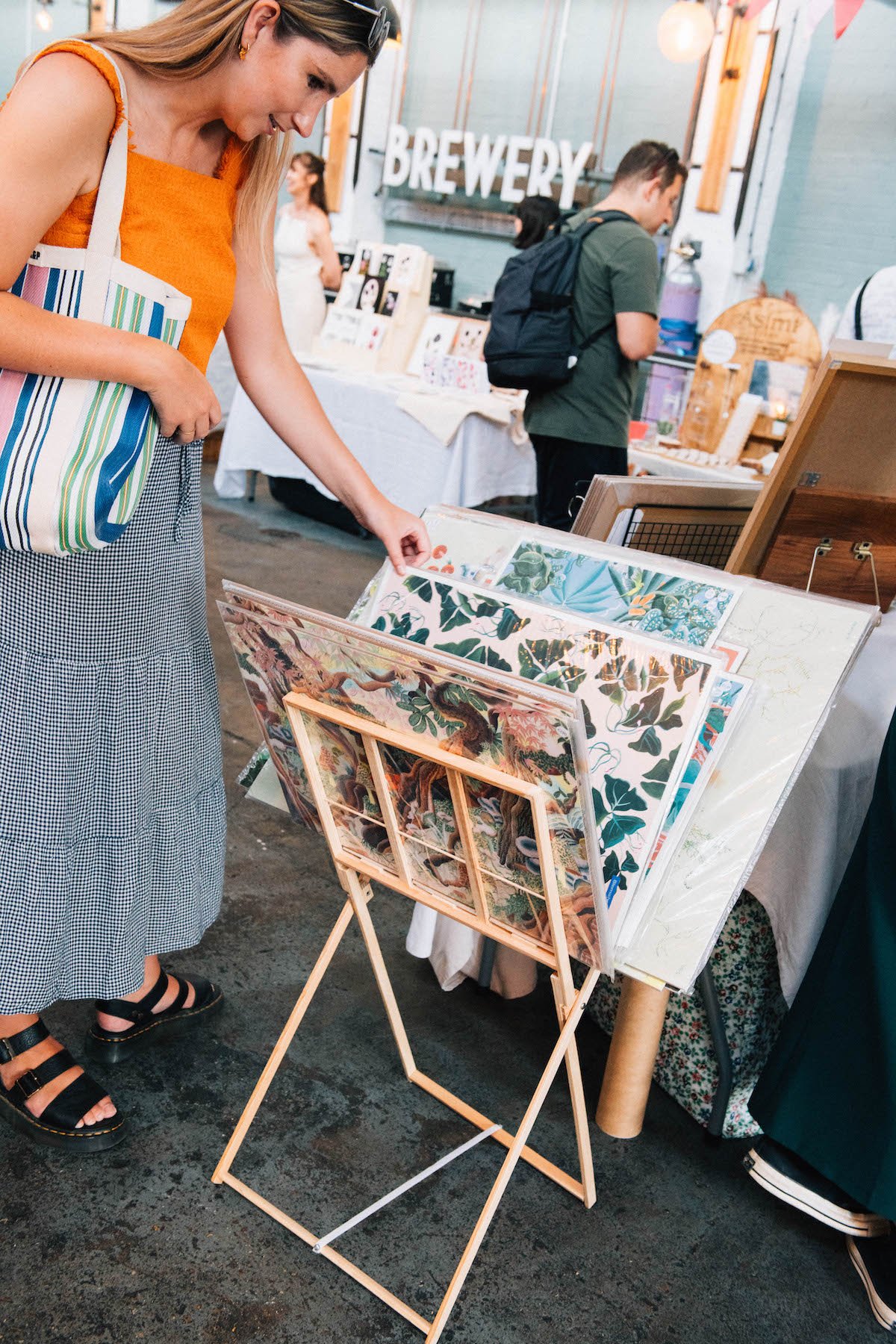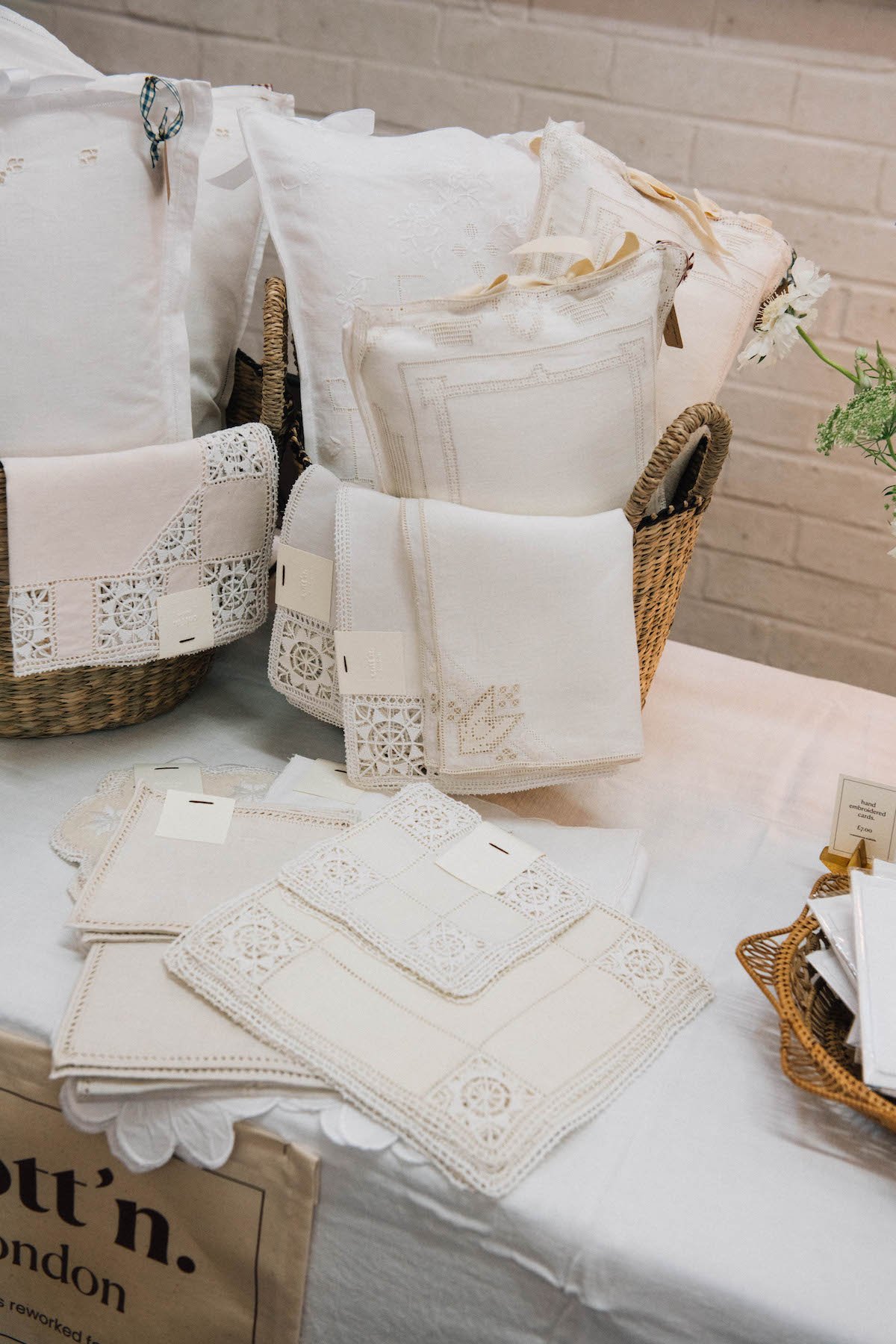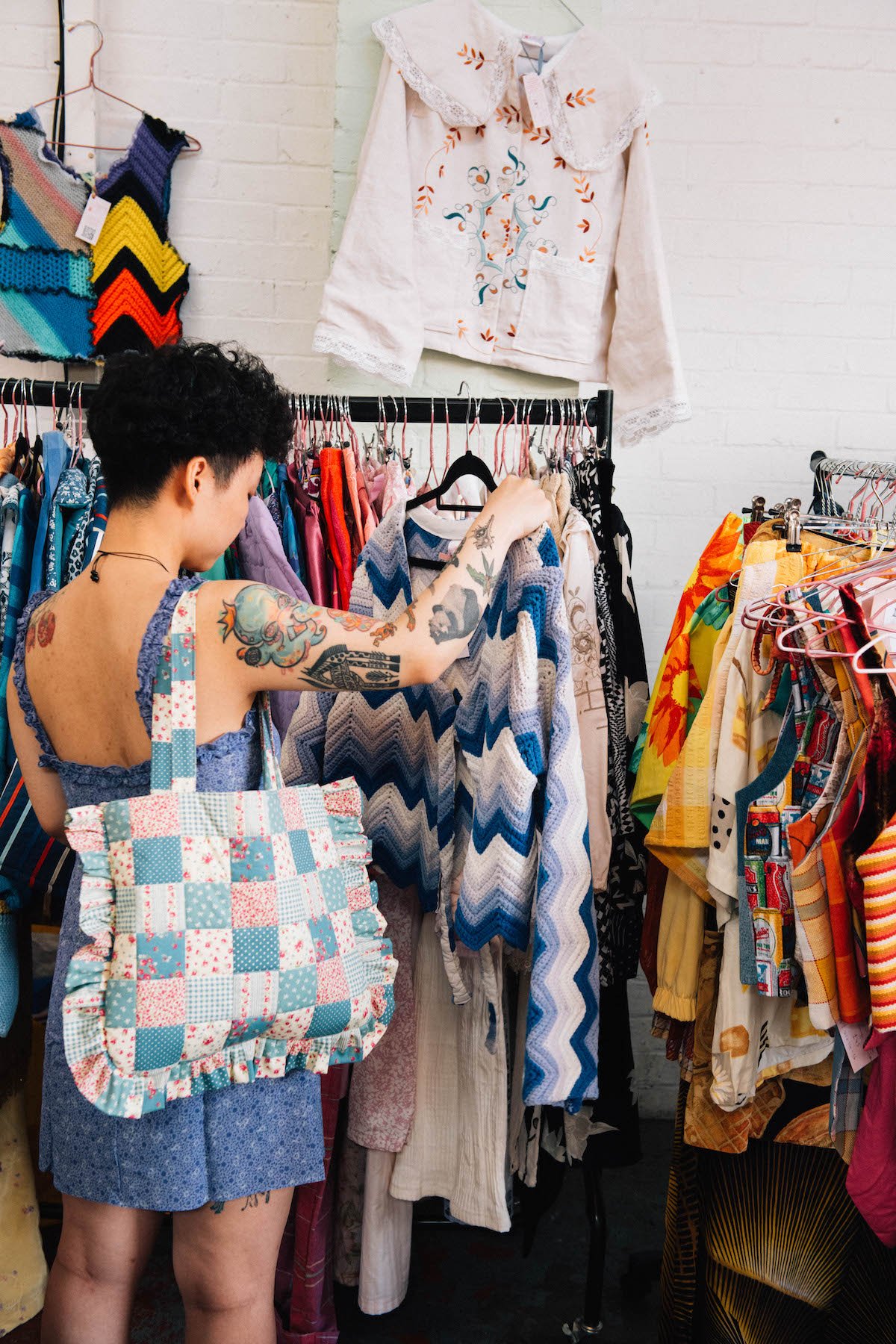How to write the perfect market application, with Salad Days Market
All image credits: Beatrice Rigby
There’s loads of situations in which small business owners want — and need — to explain what they do and put themselves in the best light. If you’re a small business who makes and sells products, one of these situations is market applications.
The right market is a perfect place to find your people, connect with your ideal clients, and ultimately sell your brilliant wares. But the top markets are often oversubscribed, so how do you make your market application stand out and show your business off in the best possible light?
I knew exactly who’d have the answers: the wonderful Daisy and Liv Tinker, founders of Salad Days Market (previously known as A South London Maker’s Market), because their line-ups are always ahead of the curve and their events are always a vibe! In venues across London, including pop-ups at iconic venues such as Selfridge’s and Battersea Power Station, they showcase the best small businesses in the UK.
Here’s what they look for from their stallholders…
1. What are you looking for from your stallholders?
First and foremost we're looking for originality; we want to keep our customers excited which means constantly wowing them with new brands and products they haven't shopped before.
We love to see craftspeople who are using traditional crafts in new and modern ways; our grandad Den was a carpenter and our grandad Vic was an upholsterer so we have a really big appreciation for people who are keeping these valuable age-old skills alive, and making them relevant for a new consumer.
Finally we're looking for passion and enthusiasm! We love working with hardworking people who are obsessed with their business and are really proud of what they do; it's inspiring and makes our job an absolute pleasure.
2. What does your market application ask for?
We ask for the applicant's name, business name, Instagram handle, website and then we ask them to tell us a little about their business.
3. What makes a good Salad Days market application?
The whole application should be extremely succinct and really dig down into what the brand's USPs and key successes are; adding value by sharing information we can't find out ourselves on their website.
For example this might be giving us information about an influencer who has recently worn their product, an award they've won or how well a product sold at their last market. That is compelling stuff!
Outside of that, a good market application would be a brand that has a streamlined online presence; who's made sure their website and Instagram are updated and looking gorgeous with their latest information and products so we get a good impression of what they're likely to offer at the market.
4. What's the biggest mistake you see applicants making?
Copying and pasting giant reams of information we could have found ourselves from their website, that doesn't make sense, is overwhelming to read and is very generic.
We also get a lot of typos where applicants have misspelled their Instagram handle or website, so then we aren't able to access them.
5. What's the biggest piece of advice you have for small businesses applying to markets?
Be ready to put the work in! If you want to be successful at getting into a market and then selling well there, it takes time and effort. If you're ready to work hard, create a new product to launch, do the legwork on marketing and then really show up as your best salesperson on the day it can be an absolutely incredible platform for developing closer relationships with customers, reaching new audiences and gathering valuable feedback.
Thank you Daisy & Liv for answering what makes a good Salad Days market application — to find out more about Salad Days you can check out their website here and their instagram here.
